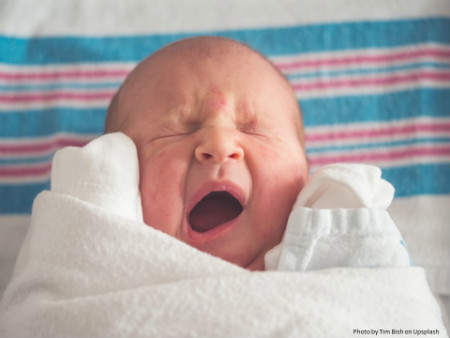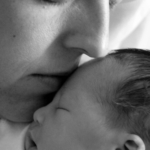For decades, researchers have postulated a connection between breastfeeding and postpartum depression (PPD). Many have suggested that breastfeeding may protect against postpartum depression and have suggested that the cessation of breastfeeding may be a trigger for postpartum depression and/or anxiety. However, the research examining the association between postpartum depression and breastfeeding has been somewhat difficult to interpret.
How exactly breastfeeding affects the risk of PPD is not well understood. Several studies have demonstrated an association between longer breastfeeding durations and a lower prevalence of PPD; however, other studies have indicated that breastfeeding mothers are not protected from PPD. Many of these earlier studies relied on small samples, and few controlled for potential confounders, such as socioeconomic factors (maternal education, family income, marital status), social supports, and stressful life events. Thus, it has been difficult to ascertain whether breastfeeding reduces the risk of PPD or if, instead, successful breastfeeding is more prevalent among mothers at lower risk for PPD – for example, those with more supports and fewer life stressors.
Most existing studies have not controlled for pre-existing mental health conditions. However, there is accumulating data to indicate that maternal depression and anxiety may affect rates of breastfeeding and may also reduce breastfeeding duration. One of the largest studies to date (Ystrom 2012) observed that women who experienced depression and/or anxiety during pregnancy were an extremely vulnerable population; not only were they more likely to stop breastfeeding early, they were more likely to experience worsening of their symptoms after cessation of breastfeeding.
Using data on mothers from an ongoing British study, the Avon Longitudinal Study of Parents and Children (ALSPAC), researchers have further investigated the effects of breastfeeding on mothers’ mental health measured at 8 weeks and 8, 21 and 32 months postpartum.
The impact of breastfeeding on depressive symptoms was mediated by the mothers’ plans to breastfeed. For mothers who were not depressed during pregnancy, the lowest risk of PPD was found among women who had planned and were able to successfully breastfeed their babies. The highest risk was found among women who had planned to breastfeed but had not gone on to breastfeed their babies. Interestingly, the risk of PPD was also higher in women who had not intended to breastfeed but ended up doing so after the baby was born.
The results were somewhat different in the group of women who were depressed during pregnancy. Although the authors urged caution in interpreting these data as the sample sizes were so small, it appeared that the risk of PPD was lower in the breastfeeding vs. non-breastfeeding women.
This study correlates with what we see clinically. We see women who do not want to breastfeed and do perfectly well without breastfeeding. In contrast, the most distraught women appear to be those who, despite being strongly committed to breastfeeding, encounter difficulties and ultimately are not able to breastfeed. Although most studies have not been able to capture this variable, it does seem that when there is a significant deviation between what was expected or planned for and what actually happens, this increase a woman’s vulnerability to PPD. A host of things may happen – an unplanned C-section, complications at delivery, a baby who has medical issues, breastfeeding difficulties; all of these can be destabilizing and may be triggers for depression in many women, especially those who do not have adequate supports.
Ruta Nonacs, MD PhD
Borra C, Iacovou M, Sevilla A. New Evidence on Breastfeeding and Postpartum Depression: The Importance of Understanding Women’s Intentions. Matern Child Health J. 2014 Aug 21. [Epub ahead of print]







Leave A Comment